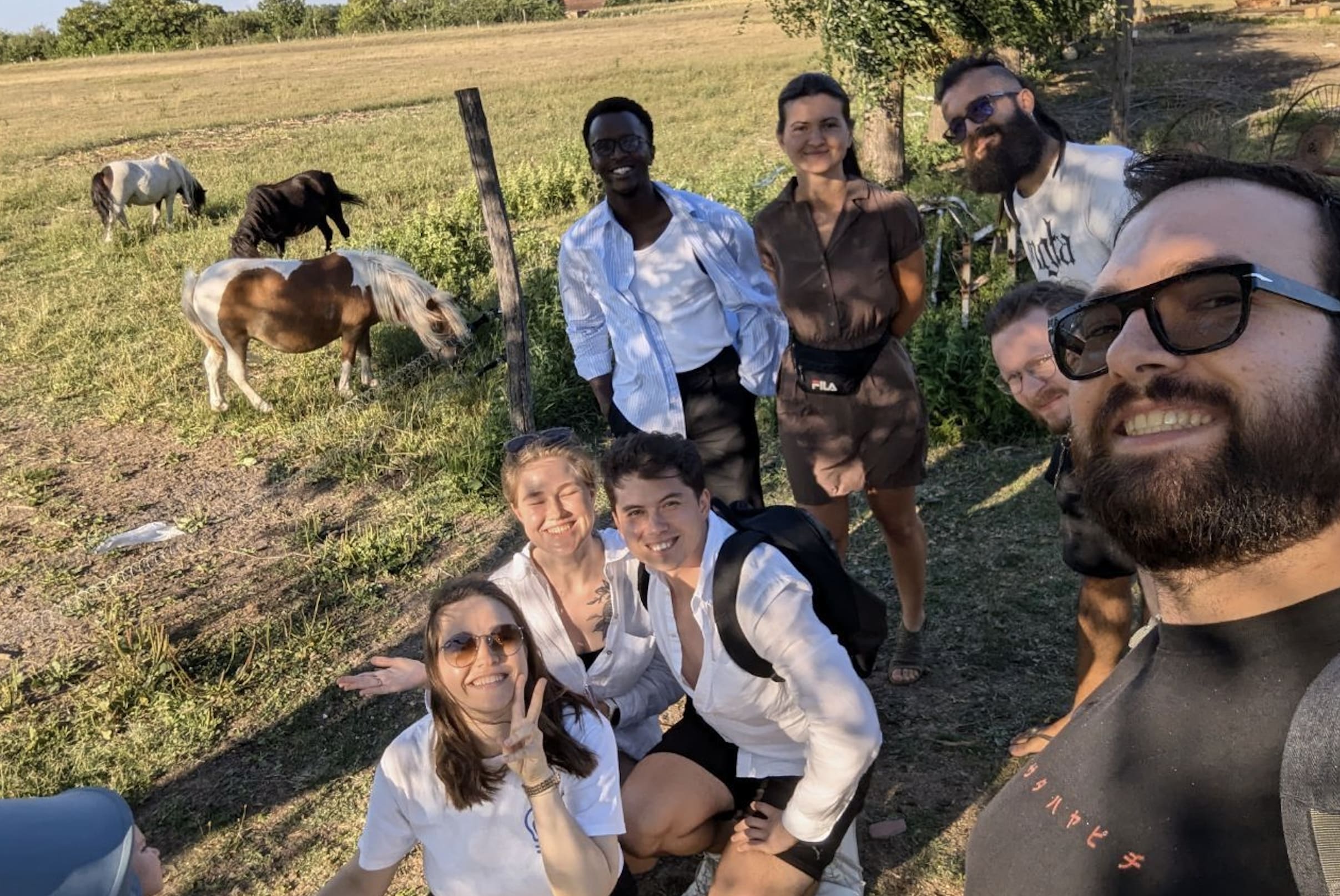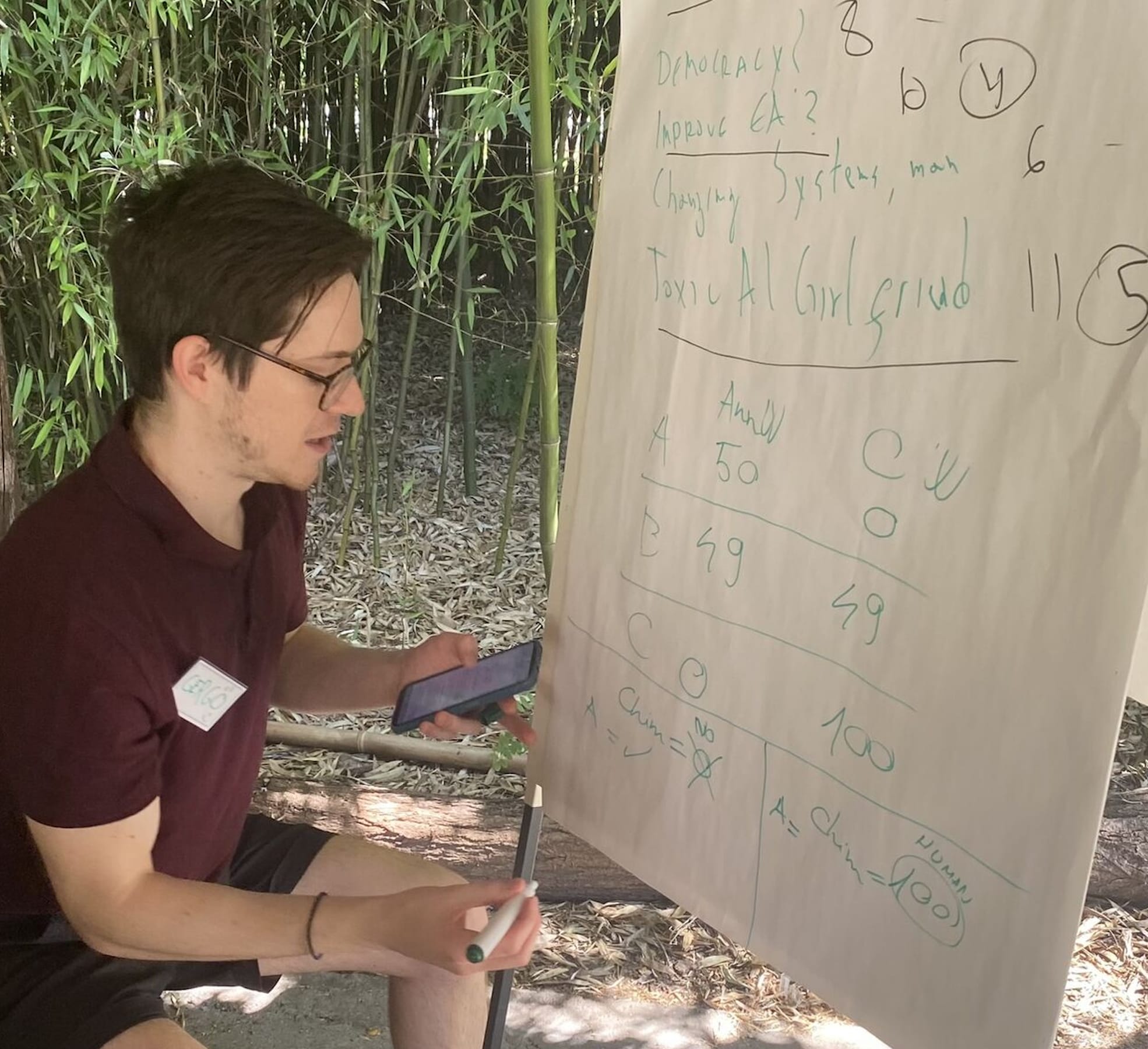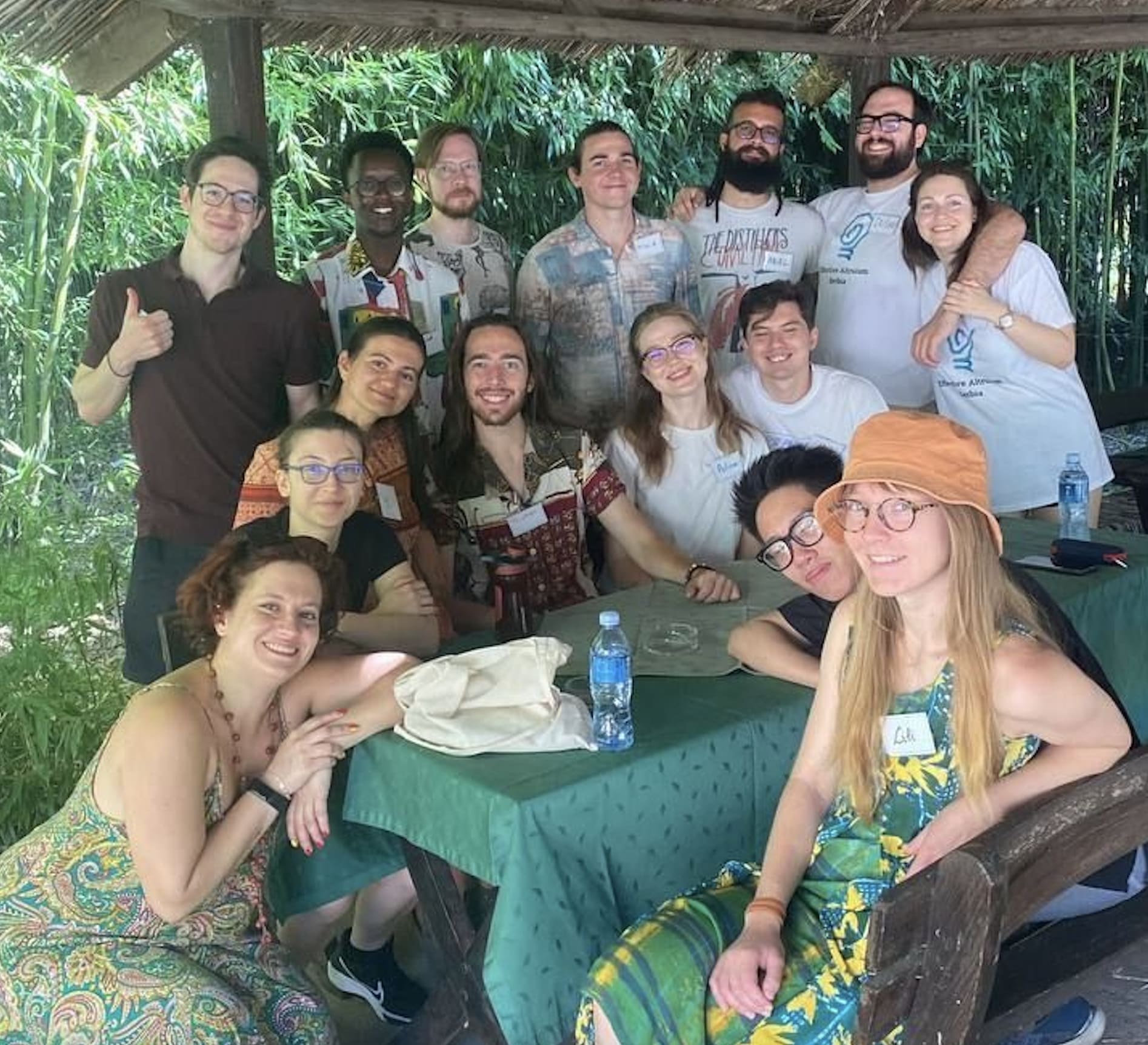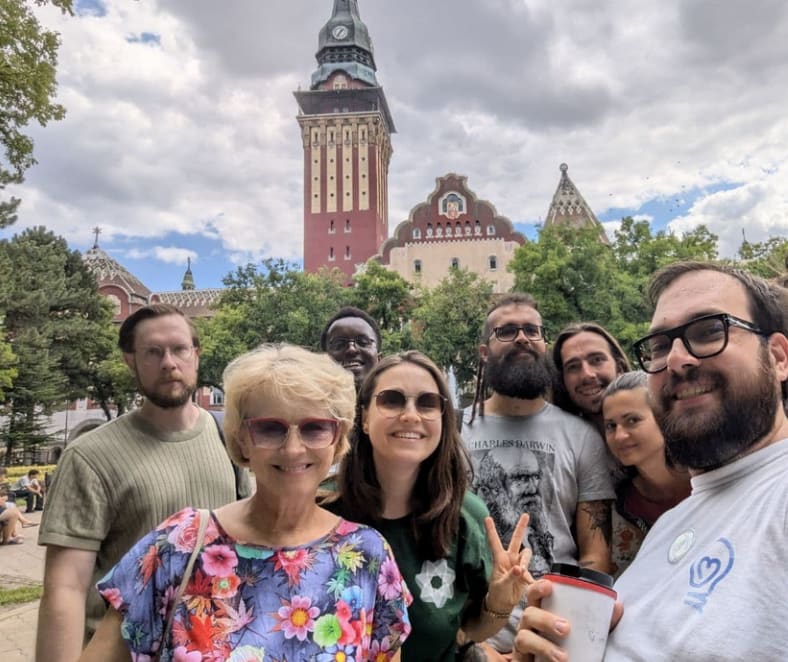Reflections on the second EA Serbia/Hungary Subotica Retreat
TLDR: We made a retreat which was not funded but was paid by attendees. We managed to find a very nice place very affordably, and the organization was quite light for quite nice results. We’d encourage other clubs to consider whether they could make meet-ups (either within the country or between countries) which are light on ops, don’t require funding, but are a meaningful time for attendees.
In August 2024, EA Serbia and EA Hungary organized a self-funded, three-day EA Serbia retreat, bringing together 17 participants from 6 countries: Serbia, Romania, Hungary, and further afield, including Russia, Kenya, and the U.S.
The retreat aimed to make and strengthen connections across regional EA communities, allowing participants to collaborate, exchange ideas, and engage deeply with the movement’s core principles, as well as learn from how things are done in other countries.
We chose Majkin Salaš, an ethno venue near Subotica, Serbia for hosting the event. The setting—a picturesque space surrounded by nature—created a nice atmosphere for reflection, discussion, and bonding. Participants had access to an outdoor swimming pool, a restaurant offering local cuisine (with a specially arranged vegan menu), and an open-air museum with lots of animals (kept in good conditions :) ).

Cost & Logistics:
The total cost per person ranged between €150 and €200, covering accommodation for two nights (2-3 people rooms), snacks and 5 meals, and additional costs like transportation (bus or gas for the car). The retreat was self-funded, with attendees covering their own expenses.
Program & Structure:
The retreat followed an unconference model, which gave us flexibility in shaping the agenda but also kept organization easy. Each attendee had the opportunity to propose and vote on topics they were passionate about, and each session was decided on the spot, so that as people learned things during one session they could immediately propose a different session for next slot, allowing ideas to progress naturally. Popular topics included career strategy within EA, local community building, and ethical dilemmas in long-termism.

Despite a packed schedule, time constraints meant that not all topics could be covered in the main sessions. This resulted in organic spillover discussions during meals, outdoor walks, and free time, which turned into some of the most rewarding conversations.
What went well:
The post-retreat survey provided positive feedback, with 100% of attendees likely to recommend the retreat to others and 90% overall satisfaction with the event’s structure. Here’s what some participants shared:
“I really enjoyed the sense of community, the group dynamics, and getting inspired by the clever and interesting people present.”
“I made valuable connections and finally met people in person that I had previously only interacted with online. It was also helpful to hear about the EA landscape in other countries.”
We also got positive feedback on the retreat being in a place so full of nature, so when picking a spot for an event, try to aim for something surrounded by forest rather than a hotel in the industrial zone, all else equal.
What could have been better:
Length: Everyone had suggested extending the event to a full 3 days to allow for more in-depth conversations. (since a lot of the cost is transport, this would not influence the price much, total cost would go up by ~40 Euros per person).
Transportation: The venue, being somewhat remote, was difficult to reach for those without cars. We had people driving others from the bus stop to the venue, but that was a bit ad-hoc and could have been better.
Dietary Preferences: We provided vegan meal options, but the restaurant (being a traditional restaurant) did not make vegan meals as diverse as we’d like. They were open to feedback and wanted to improve, but we wish we’d discussed the menu of each day in more detail with them beforehand.
Size: The next retreat that we are planning to organize SHOULD be more global. We aimed to accomodate people from the nearby countries due to the location but actually it would be also great to make it more international and reach out to more communities
Highlights for Other EA Communities to Consider:
Unconference Format: Allowing participants to shape the agenda based on shared interests is both less effort for the organizers and more organic way to let people choose their path of learning.
Self Funding: We recomend that others also consider organizing such events from individual funding instead of waiting/asking for funding from funders. If it can be made cheaply enough (by hosting it outside of town but ~convenient by transport) then it can still be attended by many people and is better than no event. Some small funds can be used to fund needs-based attendees, in our case we had some better off attendees pay some expenses of others who needed it more. A model we are excited to try is to ask people to pay either X (cost of the program) or more than X and then use that to allocate funding to those who need it. So far, we have been a small enough event to do this by hand, but as we scale, it matters to consider this.
Informal Networking is nice: Hosting the event in a casual environment like Majkin Salaš, complete with outdoor activities and communal spaces, fostered organic networking and created lasting bonds between participants. This can be a powerful tool for deepening connections in the EA community. It is hard to put an EV on it precisely, but if funds are not coming out of charity funds we encourage people to explore more options for making these bonds.

Next Steps & Future Plans:
Given the overwhelmingly positive feedback and the eagerness for a longer event, we plan to host another retreat next year. We’ll aim to incorporate the lessons learned from this experience, and for the first time promote it openly.
This retreat was an opportunity to test the waters with smaller, community-led events that can still have a big impact. We hope that other EA groups find this model useful and are inspired to create similar experiences within their own regions.
Gratitude to: @Gergő Gáspár and @EA Hungary team for coming over, @Ariel Pontes and our other Romanian guest for making the longer trek to here, Milan Alexy for bringing books for our club, and Julia Skuratova (THE grandma) for taking care of our baby Teodor while we focus on growth ;)

This is great! Thank you very much for writing this up. I’d be extremely excited for more local groups to self-fund retreats like this. I have seen similar events have large impacts on people’s goals/career choices/etc. and they seem pretty viable to do without a huge amount of planning/money.
Thanks for your thoughts, Caleb! Yes, I come from 10 years in orgs where most retreats are self-funded, and we always had a good time—learning that in EA retreats are funded was a culture shock for me. For bigger conferences, I still think it is important to be able to give free tickets and even food and travel subsidies in part or full because diversity the of thought and inclusion of those who cannot afford it matters a lot. For something this small, where I expect we can recognize such cases, I think self-funded events are quite great.
It looks great! I’m happy to see events that are fairly bottom-up and grassroots in the organization. Do you think that this template/model could be used by other groups (say, in Latin America, or in Southeast Asia) with some reasonable adaptations?
Yes! The main reason for a relatively detailed write up is because I think this model can be easily replicated and is very much not dependant on our region.